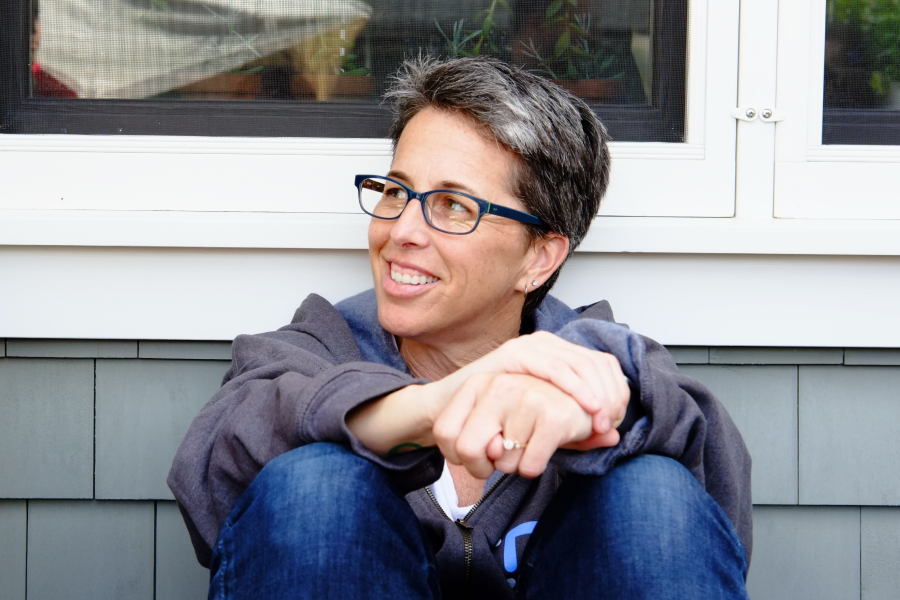Who are Experts in Type-1 Diabetes Management?
- Mike Sommer
- Oct 13, 2024
- 3 min read
Updated: Jul 31, 2025
Lived Experience has immense value in chronic conditions.
How will that be captured with T1d?

Living with Type-1 diabetes (T1d) is a daily challenge that goes far beyond just managing blood glucose levels. It’s a lifelong condition that requires constant vigilance; physical, emotional, and mental. A person with T1d is responsible to manage their blood glucose 24/7/366. There are no hours, days or weeks one can “take off”. Traditionally, healthcare providers have been the primary support system for those managing T1d, offering medical advice and treatment plans. However, with increasing demand on healthcare services and a growing shortage of diabetes specialists, a new form of support is emerging—Expert Peer Support through organized forums and practitioners.
Peer support offers something unique to the clinical experience of people with T1d: shared experience. Unlike healthcare providers, who offer expertise from a clinical perspective, T1D peers bring the lived experience of day-to-day diabetes management. They understand the emotional highs and lows, the intricacies of using diabetes technology, and the mental toll that comes with it all because they live with the condition themselves.
Peer support in T1D means connecting with another who is living with the condition to gain insight, knowledge, direction and guidance. This kind of support isn’t just theoretical—it’s grounded in the everyday experiences of someone who understands the challenges firsthand. In the T1d context, peer support involves sharing advice, emotional support, and practical tips based on real-life experience living with the disease and it’s management options.
Peer Support comes in Many Flavors
Online Communities: In T1d-specific forums, social media groups, or apps, people with T1d share tips, advice, and encouragement in real-time, knowing that others in the group truly understand their journey. At times it can actually serve as a bit of a 911 call. Support, calm, knowledge, experience. Online communities offer all of it.
Group Sessions or Meet-ups: Local or virtual support groups bring together people with T1d to discuss their experiences, helping each other navigate the dietary, activity, technology, healthcare provider and reimbursement jungle that is the life of T1d. Whatever form or purpose these have they are valuable to the T1d community. Problem solvers we are as we do it every day.
Individual Expert Peers: Coach, Life-coach, Diabetes coach. This too has many shades. Expert Peers address not just the medical side of diabetes management but also the emotional and social aspects. Many people with T1d feel isolated or misunderstood, especially by those who don’t have the condition, even their healthcare providers. Peer support bridges that gap by providing a community of people who share the same daily struggles and triumphs. T1d Expert Peers bridge the gap between medical knowledge and living wisdom uniquely through:
Shared Experience: While healthcare providers offer essential clinical advice, peers provide practical, everyday tips that come from their own experience with T1d. This might include advice on managing blood glucose during exercise, handling stress, or optimizing diabetes technology like insulin pumps or continuous glucose monitors (CGMs).
Empathy: Managing T1d can be emotionally draining. Peer support provides a space to share feelings of frustration, burnout, or fear with someone who truly understands. Knowing that someone else is going through the same challenges can be incredibly comforting.
Empowerment: Peer support fosters a sense of empowerment and self-efficacy. People who receive support from peers often feel more confident in their ability to manage T1d and make informed decisions about their care.
Technology Expert Peers in Type-1 diabetes. The Future
As technology advances, people with Type-1 diabetes have a plethora of management tools. From smart pens and CGMS to insulin pumps and Automated Insulin Delivery (AID) systems. However, these technologies can also present new challenges, and that's where peer support plays a critical role.
T1d peer experts help others navigate the complexities of diabetes technology. These peer experts—people who have extensive experience with T1d technology—offer guidance on setting up and managing devices, troubleshooting, and optimizing use. Their shared experience provides practical, real-world solutions, making diabetes technology more accessible and less intimidating.
T1d peer support isn’t just a helpful addition to professional diabetes care—it’s a vital part of living well with Type-1 diabetes. When people with T1d share their experiences, they provide invaluable support that can improve both physical health and emotional well-being. As the demand on healthcare providers continues to grow, peer support is becoming more important.
Mike
Just Another T1d
Loop CoPilot, T1d Expert Peer



Comments